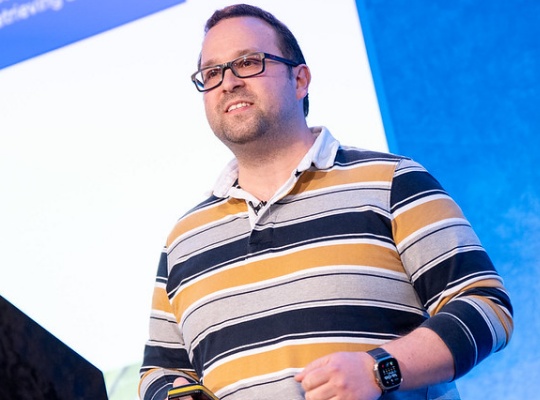Codetown
Codetown ::: a software developer's community
Using scala scripts to check Java jar files
Have you tried to verify that a Class must exists in a lib directory that has few dozens jar files? For example I read from a forum that there is a ServerInfo.properties inside one of tomcat jar, so I run this:
$ scala searchjar.scala ServerInfo /opt/tomcat6/lib /opt/tomcat6/lib/catalina.jar org/apache/catalina/util/ServerInfo.classThe script can walk over one or more directory and search all jar files for you.
/opt/tomcat6/lib/catalina.jar org/apache/catalina/util/ServerInfo.properties
The second thing I do once a while is I want to see the content of a text inside the jar. For the example above, I can run my second script like this:
$ scala displayjar.scala /opt/tomcat6/lib/catalina.jar org/apache/catalina/util/ServerInfo.properties # Licensed to the Apache Software Foundation (ASF) under one or moreYou can even run the displayjar.scala with just a jar file, and it default to print out the Manifest file content.
# contributor license agreements. See the NOTICE file distributed with
# this work for additional information regarding copyright ownership.
# The ASF licenses this file to You under the Apache License, Version 2.0
# (the "License"); you may not use this file except in compliance with
# the License. You may obtain a copy of the License at
#
# http://www.apache.org/licenses/LICENSE-2.0
#
# Unless required by applicable law or agreed to in writing, software
# distributed under the License is distributed on an "AS IS" BASIS,
# WITHOUT WARRANTIES OR CONDITIONS OF ANY KIND, either express or implied.
# See the License for the specific language governing permissions and
# limitations under the License.
server.info=Apache Tomcat/6.0.18
server.number=6.0.18.0
server.built=Jul 22 2008 02:00:36
Hope these scripts are useful to you.
Tags:
- Attachments:
-
-
 searchjar.scala, 1 KB
searchjar.scala, 1 KB -
 displayjar.scala, 1 KB
displayjar.scala, 1 KB
-
Replies to This Discussion
Notes
Welcome to Codetown!
 Codetown is a social network. It's got blogs, forums, groups, personal pages and more! You might think of Codetown as a funky camper van with lots of compartments for your stuff and a great multimedia system, too! Best of all, Codetown has room for all of your friends.
Codetown is a social network. It's got blogs, forums, groups, personal pages and more! You might think of Codetown as a funky camper van with lots of compartments for your stuff and a great multimedia system, too! Best of all, Codetown has room for all of your friends.
Created by Michael Levin Dec 18, 2008 at 6:56pm. Last updated by Michael Levin May 4, 2018.
Looking for Jobs or Staff?
Check out the Codetown Jobs group.
InfoQ Reading List
MySQL 9.6 Changes Foreign Key Constraints and Cascade Handling

MySQL is changing the way foreign key constraints and cascades are managed. Starting with MySQL 9.6, foreign key validation and cascade actions are handled by the SQL layer rather than the InnoDB storage engine. This will improve change tracking, replication accuracy, and data consistency, making MySQL more reliable for CDC pipelines, mixed-database environments, and analytics workloads.
By Renato LosioVercel Releases React Best Practices Skill with 40+ Performance Rules for AI Agents

Vercel has launched "react-best-practices," an open-source repository featuring 40+ performance optimization rules for React and Next.js apps. Tailored for AI coding agents yet valuable for developers, it categorizes rules based on impact, assisting in enhancing performance, bundle size, and architectural decisions.
By Daniel CurtisKubernetes Introduces Node Readiness Controller to Improve Pod Scheduling Reliability

The Kubernetes project recently announced a new core controller called the Node Readiness Controller, designed to enhance scheduling reliability and cluster health by making the API server’s view of node readiness more accurate.
By Craig RisiPresentation: Platforms for Secure API Connectivity With Architecture as Code

Jim Gough discusses the transition from accidental architect to API program leader, explaining how to manage the complexity of secure API connectivity. He shares the Common Architecture Language Model (CALM), a framework designed to bridge the developer-security gap. By leveraging architecture patterns, engineering leaders can move from six-month review cycles to two-hour automated deployments.
By Jim GoughMicrosoft Open Sources Evals for Agent Interop Starter Kit to Benchmark Enterprise AI Agents

Microsoft's Evals for Agent Interop is an open-source starter kit that enables developers to evaluate AI agents in realistic work scenarios. It features curated scenarios, datasets, and an evaluation harness to assess agent performance across tools like email and calendars.
By Edin Kapić
© 2026 Created by Michael Levin.
Powered by
![]()